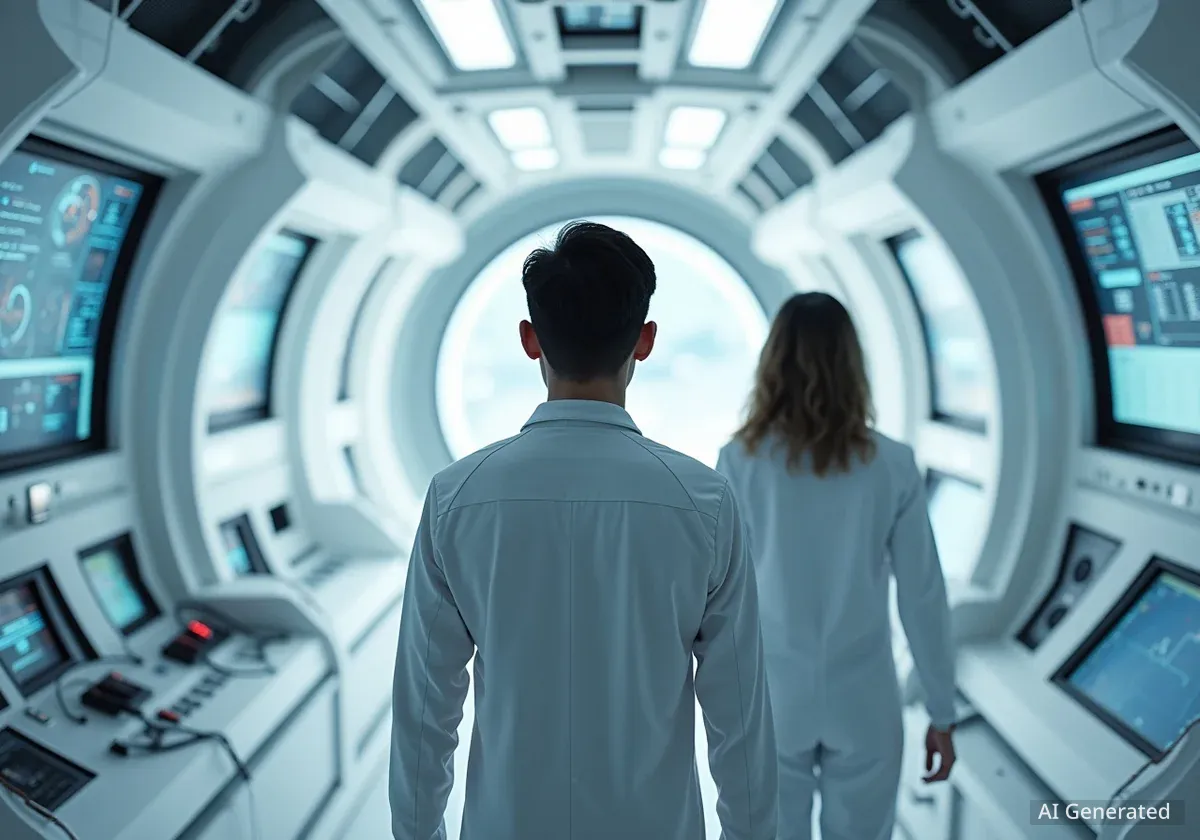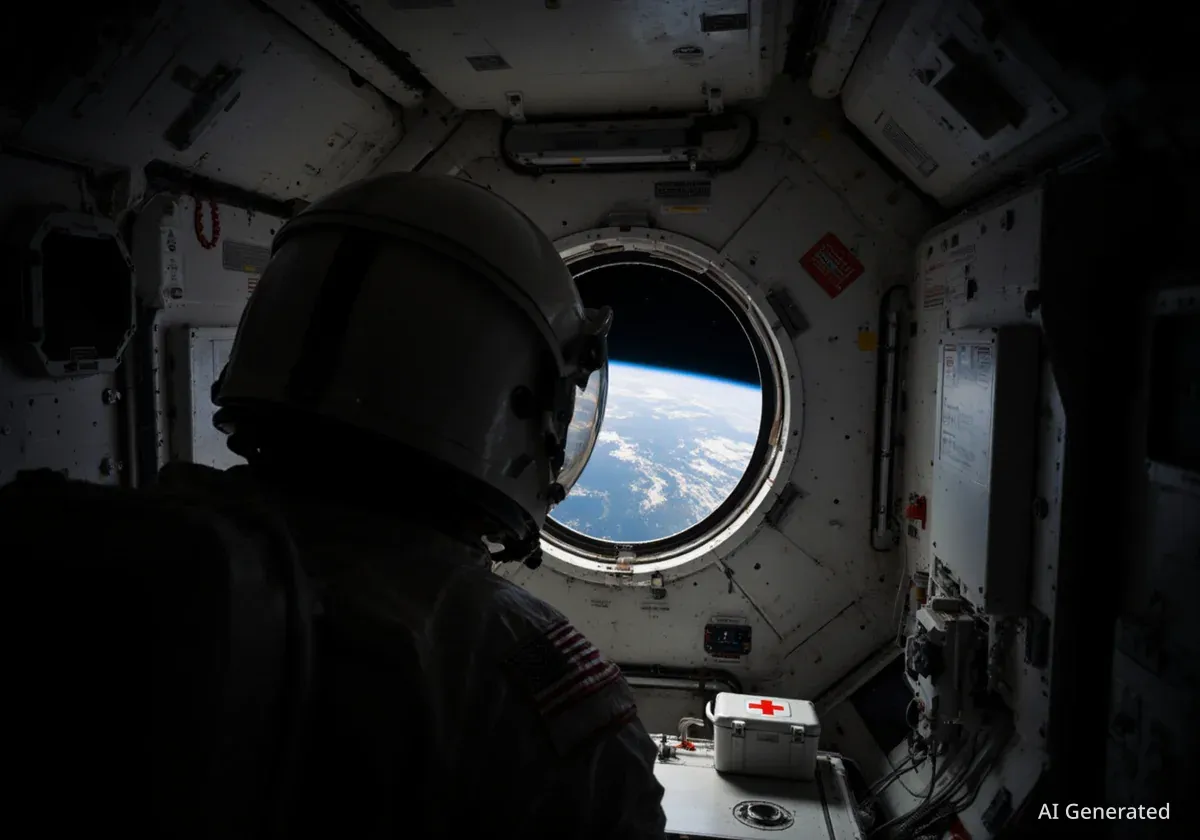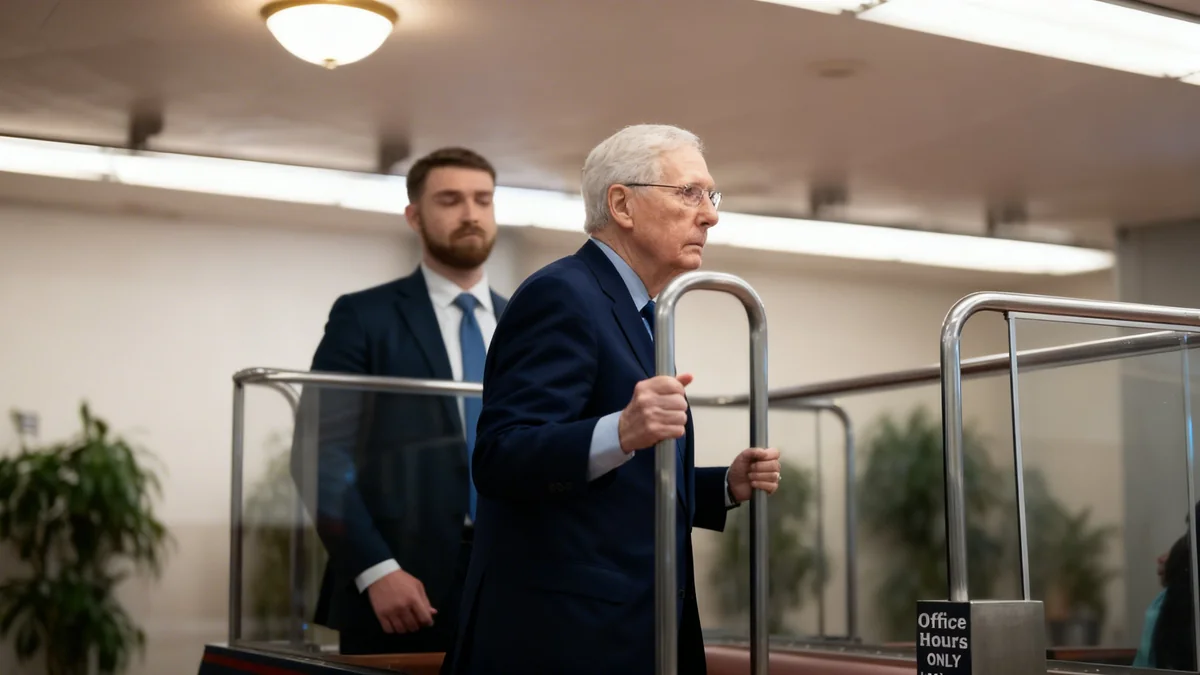Kazakhstan has initiated its first long-term crew isolation experiment, named SANA-1, designed to simulate the conditions of a space flight. The project, which began on October 1 at the National Space Center in Astana, features a crew composed entirely of four female specialists who will live and work in a ground-based spacecraft simulator for 10 days.
Key Takeaways
- Kazakhstan has launched SANA-1, its first long-term space flight simulation experiment.
- The 10-day mission features an all-female crew of four specialists.
- Researchers will conduct psychological, medical, and team dynamics studies in isolation.
- The project is a collaboration between government bodies, private ventures, and academic institutions.
- SANA-1 aims to advance Kazakhstan's space research capabilities and promote women in STEM fields.
Kazakhstan Launches SANA-1 Isolation Experiment
A new chapter in Kazakhstan's space research began with the launch of the SANA-1 project. This ground-based experiment places four researchers in a confined environment for 10 days to study the effects of long-duration isolation, a critical factor in planning future human space missions. The mission is being conducted at the National Space Center in Astana.
The project represents a significant step for the country, marking its first comprehensive study that integrates multiple scientific disciplines to understand the challenges of space travel. According to the Ministry of Artificial Intelligence and Digital Development, the experiment will provide valuable data for Kazakhstan's growing space program.
Simulating the Void of Space on Earth
Isolation experiments like SANA-1 are essential for preparing astronauts for deep space missions, such as journeys to Mars. These simulations help scientists understand how confinement, lack of privacy, and altered day-night cycles affect human psychology, physiology, and social interaction. Data collected is used to develop better support systems and countermeasures for real spaceflights.
The All-Female Crew and Their Mission
A defining characteristic of the SANA-1 project is its all-female crew. This decision highlights the increasing role of women in science and space exploration and provides a unique opportunity to study team dynamics within a specific demographic. The four crew members are all specialists from organizations operating under the country's Aerospace Committee.
The crew consists of:
- Yuliya Bakirova (Commander)
- Assem Kuandyk
- Daria Komarova
- Linara Zhadygerova
During their 10-day confinement, the team will live and work inside a specialized spacecraft simulator. This habitat was developed by Eurasian Ventures Group, a private company contributing to the project. The initiative for such a simulator was originally proposed by Aidyn Aimbetov, a celebrated Kazakh cosmonaut and national hero.
Mission Duration and Environment
The crew will spend a total of 240 hours in isolation. The ground-based simulator is designed to replicate the confined living and working quarters of a real spacecraft, creating a high-fidelity environment for the scientific studies.
Scientific Goals and Research Program
The primary objective of SANA-1 is to gather data on human adaptation to isolated and confined environments. The scientific program is extensive, covering multiple fields to create a holistic picture of the crew's experience. The research will focus on several key areas, including medical studies, psychological assessments, and team-dynamics analysis.
Dr. Alina Gutoreva, a PhD in Psychology and the head of the AI Lab at the Kazakh-British Technical University, is leading the scientific program. Her expertise will guide the psychological components of the research, which are critical for understanding the mental health and cognitive performance of crews on long missions.
Key Research Areas
The experiments conducted during the mission are designed to be multifaceted. The crew will be responsible for executing a series of studies that include:
- Medical Research: Monitoring physiological changes in the crew members, such as stress responses, sleep patterns, and other health metrics.
- Psychological Studies: Assessing cognitive function, emotional well-being, and the psychological impact of prolonged isolation.
- Team Dynamics: Observing how the crew interacts, communicates, and solves problems together under stressful conditions.
- Educational Experiments: Conducting outreach activities and experiments designed to inspire students and the public about space and science.
A Collaborative National Initiative
The SANA-1 project is not the work of a single entity but a broad collaboration. It brings together government oversight, private industry innovation, and academic expertise. This partnership model is crucial for developing a robust national space ecosystem.
The key stakeholders are the Aerospace Committee of the Ministry of Artificial Intelligence and Digital Development, which provides governmental support, and Eurasian Space Ventures, the private partner responsible for the simulator technology. Leading national scientific and educational institutions, including the Kazakh-British Technical University, are providing the scientific framework and leadership for the research.
This joint implementation model leverages the strengths of different sectors to achieve a common goal, a strategy becoming increasingly common in the global space industry.
Strategic Importance for Kazakhstan's Space Program
Beyond its scientific value, the SANA-1 mission holds significant strategic importance for Kazakhstan. The project serves as a platform to build domestic expertise in human spaceflight research, reducing reliance on international partners and paving the way for more ambitious national missions in the future.
Furthermore, the high-profile nature of the mission, particularly its all-female crew, is intended to inspire a new generation. By showcasing these four women in science, Kazakhstan aims to encourage more young people, especially girls, to pursue careers in Science, Technology, Engineering, and Mathematics (STEM). The project is a clear statement about the country's commitment to gender equality and its readiness to prepare its own researchers for the challenges of space exploration.





